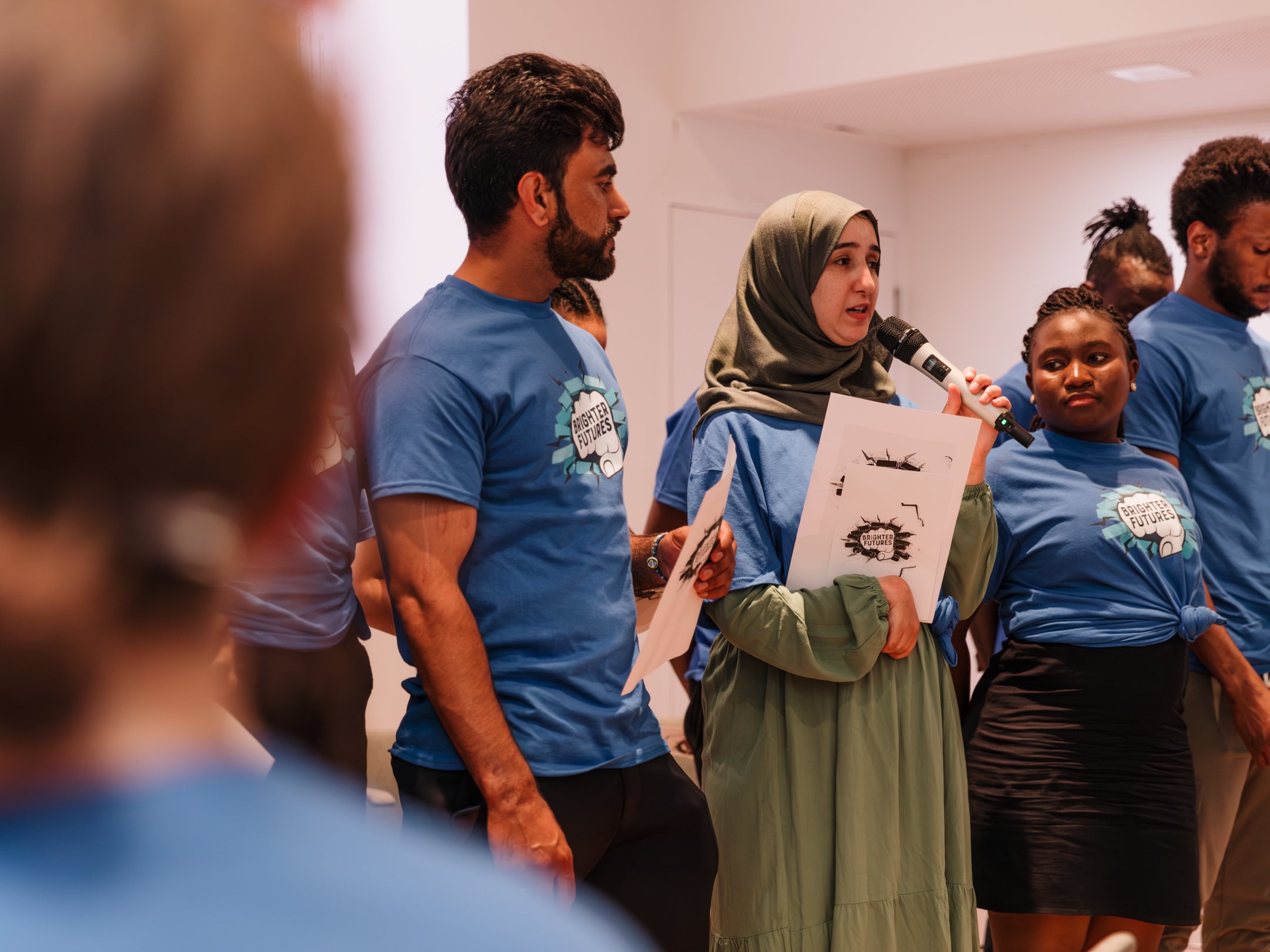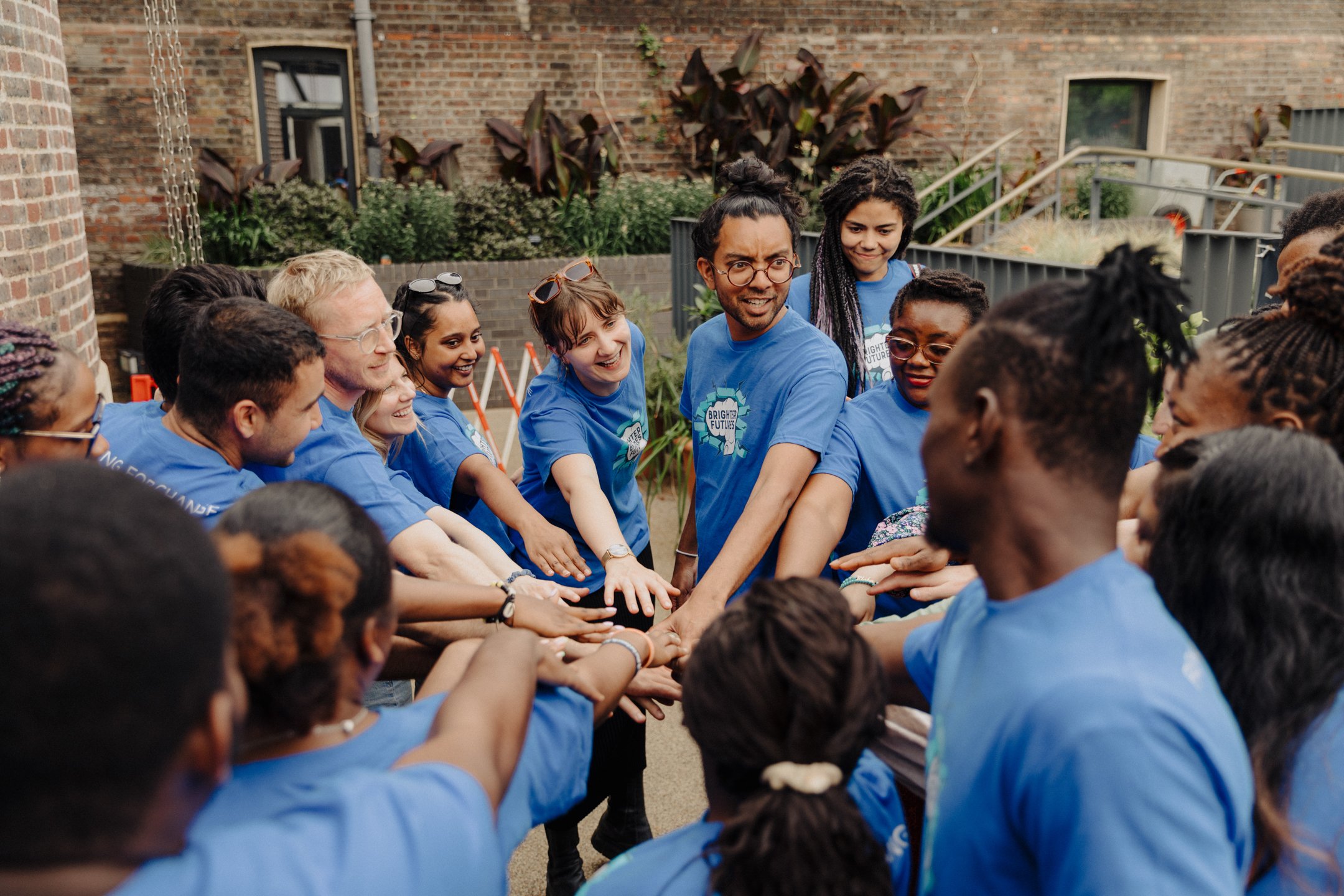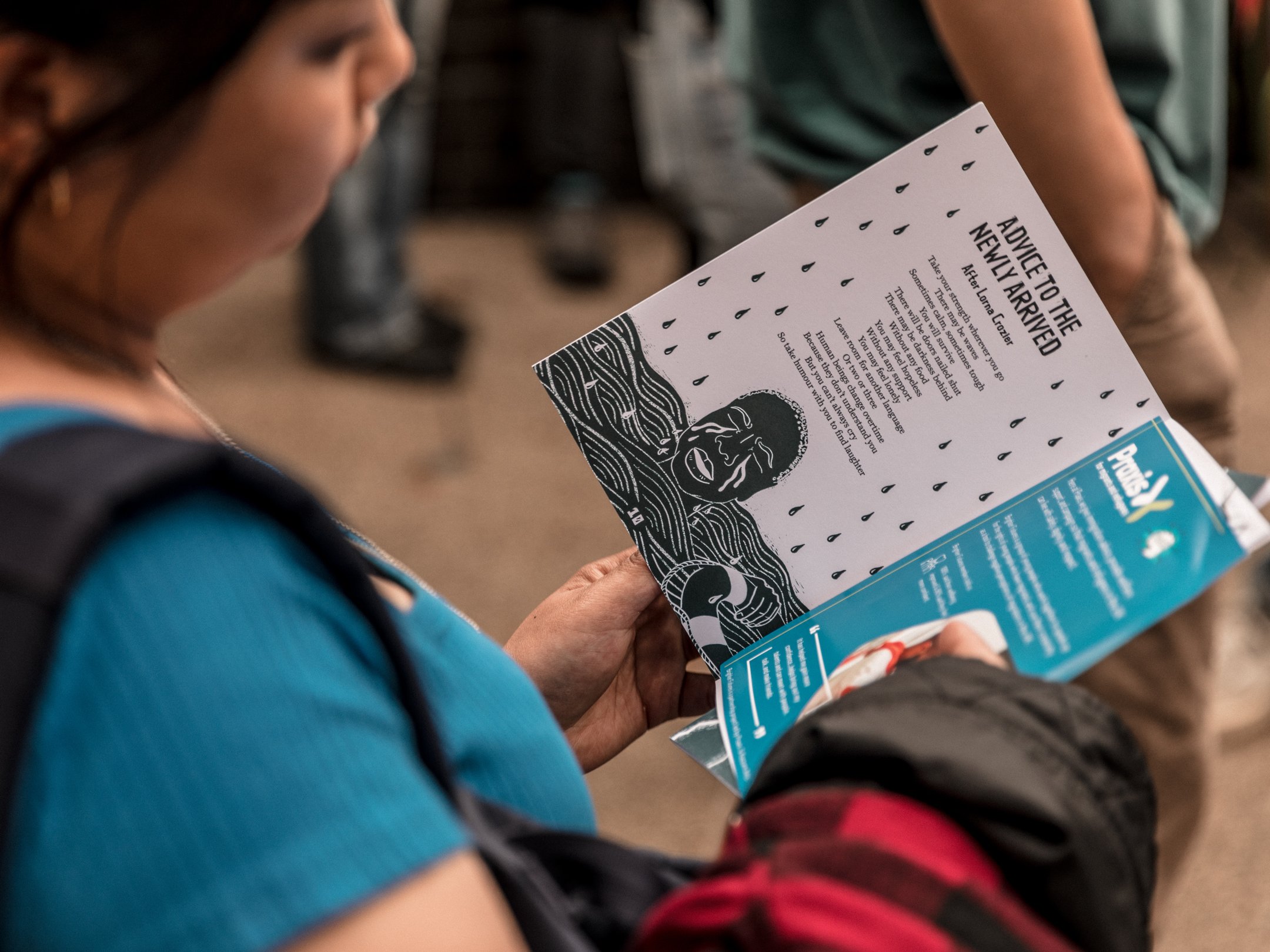Our Homes, Our Rights
For over 10 years we have partnered with Praxis to co-facilitate Brighter Futures, a group for young activists from refugee, asylum-seeking and undocumented backgrounds. Kazzum has supported the group’s advocacy work alongside personal expression and growth using creativity. In June 2023 20 members of the group came together as a community to launch a campaign for better housing solutions for asylum seekers in the UK, focusing on safe and adequate provisions that avoid re-traumatisation.
There is a pervasive idea that has been spread across UK media that asylum seekers and refugees are housed in luxury hotels indefinitely at the taxpayers' expense. This view is far from the reality of uncertain, cramped and often unsafe housing that has become the norm for asylum accommodation in this country. Those that come to the UK fleeing war and violence in their own countries are faced with hostilities from all angles when they reach our shores, starting with the place they sleep.
Kazzum’s associate artist Arji Manuelpillai supported group members to create a poetry collection that draws upon their lived experience. This was accompanied by their manifesto, which highlights some of the areas where accommodation solutions are often insufficient and unsafe. There are three core aims that Brighter Futures are fighting for.
The belief that:
Everyone has the right to privacy and should not be forced to share a room
Everyone should have a safe and clean home, with access to a working kitchen
Young migrant people should not be moved away from their support networks and services
On the evening of the 20th of June 2023, World Refugee Day, we gathered at the Museum of Home as the members of Brighter Futures stood up in front of an audience of over 100 people to recite their powerful activist poetry and discuss the failings in the current asylum housing provision. In an adjacent room were pieces of artwork created by members of the group with the support from artist Teresa Hare-Duke and Queen Mary University’s Centre for Public Engagement, and there were also members of ‘Migrant Organises Housing Action Group’ on stage for a panel discussion during the evening too.
The place that you sleep at night should not be a cause for re-traumatisation and should not leave anyone feeling cut adrift from their support network. No one deserves to feel unsafe or be without access to basic necessary facilities. We stand with Brighter Futures and the many others fighting for change - everyone should have access to safe and adequate housing, regardless of where they come from.
“The government and media use terms like ‘initial’ ‘contingency’ or ‘temporary’ they say it is only short term, but you can be stuck in these conditions for months or even years and it takes a toll on your body and mind. You live in survival mode, fighting for repairs, fighting for your rights while being chased by the fear that one day you may be sent away. You get tired, you burn out. You use so much energy fighting for your rights, fighting for help, you can’t use that energy to build a future.
It’s time for change!”
Brighter Future’s member Isatu shared more about the campaign:
The ‘Our Homes Our Rights’ event was put together to raise awareness about why inadequate asylum accommodation is a genuine issue that many refugees and asylum seekers, including myself, face. It is unacceptable that people who have fled their homes due to varying circumstances e.g., war, persecution, or other forms of violence are forced to live in overcrowded, unsanitary, and unsafe conditions. The lack of proper housing can have severe consequences on the mental and physical health of refugees and asylum seekers, as well as impede their ability to integrate into society.
When planning the event, we spent time listening to others about what they are going through with their different housing outcomes; for example, living in a hotel, shared accommodation such as shared bedrooms and shared houses, and hostels and shelters.
Many asylum seekers are placed in temporary shared accommodation while they are waiting for their claim to be processed. These facilities are often overcrowded and do not provide adequate privacy or security. Many refugees and asylum seekers report feeling unsafe and vulnerable in these environments, especially women, children, and young people.
In addition to the lack of privacy and security, many asylum accommodations are also in poor condition. Some of these accommodations lack basic amenities such as heating or hot water. Some will have unusable kitchens or go days without electricity and bedrooms may lack windows. All of this makes it difficult for occupants to prepare their meals or maintain basic hygiene standards.
As a member of Brighter Futures, I have seen many other members who are asylum seekers relocated to areas with elevated levels of deprivation, which can exacerbate existing mental health issues and make it difficult for them to access healthcare and other essential services. This leads to social isolation and a lack of integration into the wider community.
There is an urgent need for action to improve the standard of asylum accommodation and our main aim for the event was to show that these issues require immediate attention. It is unacceptable that refugees and asylum seekers are forced to live in overcrowded, unsanitary, and unsafe conditions.
The Home Office, government officials and other relevant authorities must work together to ensure that asylum seekers and refugees are provided with safe, secure, and adequate housing. This includes providing access to basic amenities, such as heating, hot water, electricity, and ventilation, as well as ensuring that accommodations are not overcrowded and provide privacy and security in order to ensure that asylum seekers and refugees can rebuild their lives and fully integrate into society.
Find out more about the Brighter Futures campaign here.
Thank you to Paul Hamlyn Foundation, abrdn and Queen Mary University for supporting this project.



